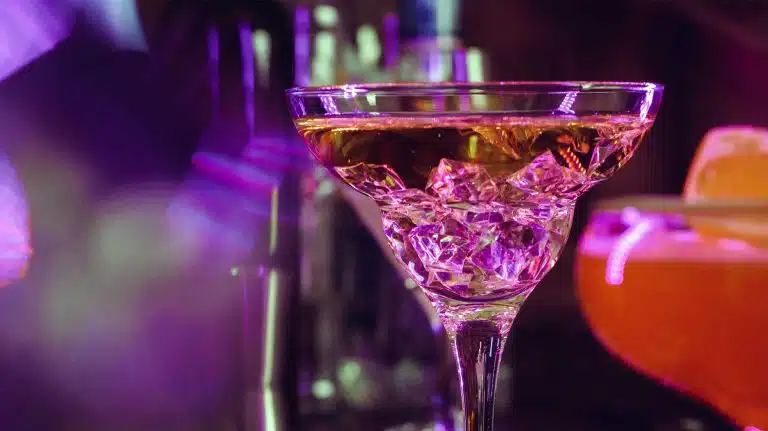Mixing Molly (MDMA) & Alcohol | Effects & Health Risks

Mixing MDMA (or “molly“) and alcohol may happen at dance parties, raves, and other places where MDMA is used. This mix can cause side effects like high blood pressure, increased stress on heart cells, and a false sense of confidence.
MDMA is a popular synthetic drug that causes stimulant and hallucinogenic effects. It may be used to increase energy levels and euphoria during long parties. Alcohol is a popular depressant that slows down activity in the central nervous system.
MDMA is an illegal drug, so taking it in any form is considered drug abuse. A study from 2002 reported over 95% of people who took MDMA also drank alcohol, and both substances continue to be popular in the United States today.
Effects Of Mixing Molly & Alcohol
Taking molly and alcohol can lead to increased feelings of euphoria. Studies show feelings of euphoria lasted longer in people who took both alcohol and MDMA, compared to people who only took MDMA.
Molly may also reduce feelings of sedation in people who drink alcohol. You may feel side effects of both molly and alcohol when you mix them, including:
- impulsive behavior
- high body temperature
- “bruxing” (constant jaw clenching)
- increased energy
- increased heart rate
- hot flashes
Risks Of Mixing Alcohol & MDMA
A large percentage of tests on mixing alcohol and MDMA have been performed on animals and not humans. However, both human and animal studies point to many different risks of mixing alcohol and MDMA.
Increased Side Effects
Alcohol use may reduce the body’s ability to break down amphetamines. This can lead to higher amounts of amphetamines in the blood, leading to stronger effects like decreased mood and difficulty concentrating.
Studies about alcohol’s interactions with methamphetamine may also apply to MDMA, since the two substances have similar structures and compositions.
Interactions between alcohol and MDMA can cause depletion in dopamine and serotonin transporters, which can lead to an imbalance of neurotransmitters in the brain. This imbalance can lead to toxicity and habit-forming behaviors, since dopamine and serotonin control reward and mood.
False Sense Of Confidence
Some studies on combined MDMA and alcohol use studied the feelings of patients after taking both molly and alcohol. Many patients reported feeling less sedated after taking MDMA with alcohol, but their impairment levels were still around the same.
According to this study, MDMA may make people feel less drunk than they actually are. Meanwhile, the body is still going through the same effects of alcohol. A person’s reaction time and coordination is still affected by alcohol even when mixed with MDMA.
A false sense of confidence may make a person more likely to do dangerous activities, like driving a car while intoxicated.
Organ Damage
One study showed that combined substance use of molly and alcohol put higher stress on heart cells in mice. High stress on heart cells can lead to serious long-term effects like heart disease.
It is believed that combined MDMA and alcohol use can lead to an increase of a protein known as HSP27 in the heart. More HSP27 is linked to higher amounts of stress in the heart, which can lead to long-term damage.
Combined MDMA and alcohol use can also damage other organs, such as the liver or pancreas.
Potential Benefits Of MDMA For Alcohol Use
MDMA has recently been tested as a treatment option for people recovering from an alcohol use disorder. Early results showed that supervised MDMA use was linked to lower alcohol consumption after treatment was done.
Testing for MDMA to treat drug and alcohol addiction is still in its early stages. In these studies, patients were probably not drinking alcohol and taking MDMA at the same time, as alcohol may have gotten in the way of the effects of MDMA.
More studies on this treatment method may be needed. Currently, MDMA is not an approved treatment for alcohol abuse and addiction.
Find Treatment For Illicit Drug Use & Alcohol Abuse
MDMA is a synthetic drug that was created to have strong effects. Its interactions with alcohol are not fully understood, but many studies show the risks of mixing the two.
Frequent substance abuse of MDMA can lead to depression and other mental health problems. Frequent alcohol abuse can cause similar problems. Bouncing back from one or more substance abuse problems can involve professional help.
To find a drug or alcohol addiction treatment program that works for you, please contact our helpline today.
Written by Ark Behavioral Health Editorial Team
©2024 Ark National Holdings, LLC. | All Rights Reserved.
This page does not provide medical advice.
Journal of Addiction Research and Therapy - Alcohol Interactions with Psychostimulants: An Overview of Animal and Human Studies
Journal of Psychopharmacology - First study of safety and tolerability of 3,4-methylenedioxymethamphetamine-assisted psychotherapy in patients with alcohol use disorder
Multidisciplinary Digital Publishing Institute - Alcohol Interaction with Cocaine, Methamphetamine, Opioids, Nicotine, Cannabis, and γ-Hydroxybutyric Acid
National Institute on Drug Abuse - What are MDMA’s effects on the brain?
National Library of Medicine: PubMed Central - 3,4-Methylenedioxymethamphetamine (ecstasy) and alcohol interactions in humans: psychomotor performance, subjective effects, and pharmacokinetics
The Public Library of Science - Binge Ethanol and MDMA Combination Exacerbates Toxic Cardiac Effects by Inducing Cellular Stress

Questions About Treatment?
Ark Behavioral Health offers 100% confidential substance abuse assessment and treatment placement tailored to your individual needs. Achieve long-term recovery.
100% confidential. We respect your privacy.
Prefer Texting?
Our friendly support team is here to chat 24/7. Opt out any time.







 Learn More
Learn More








